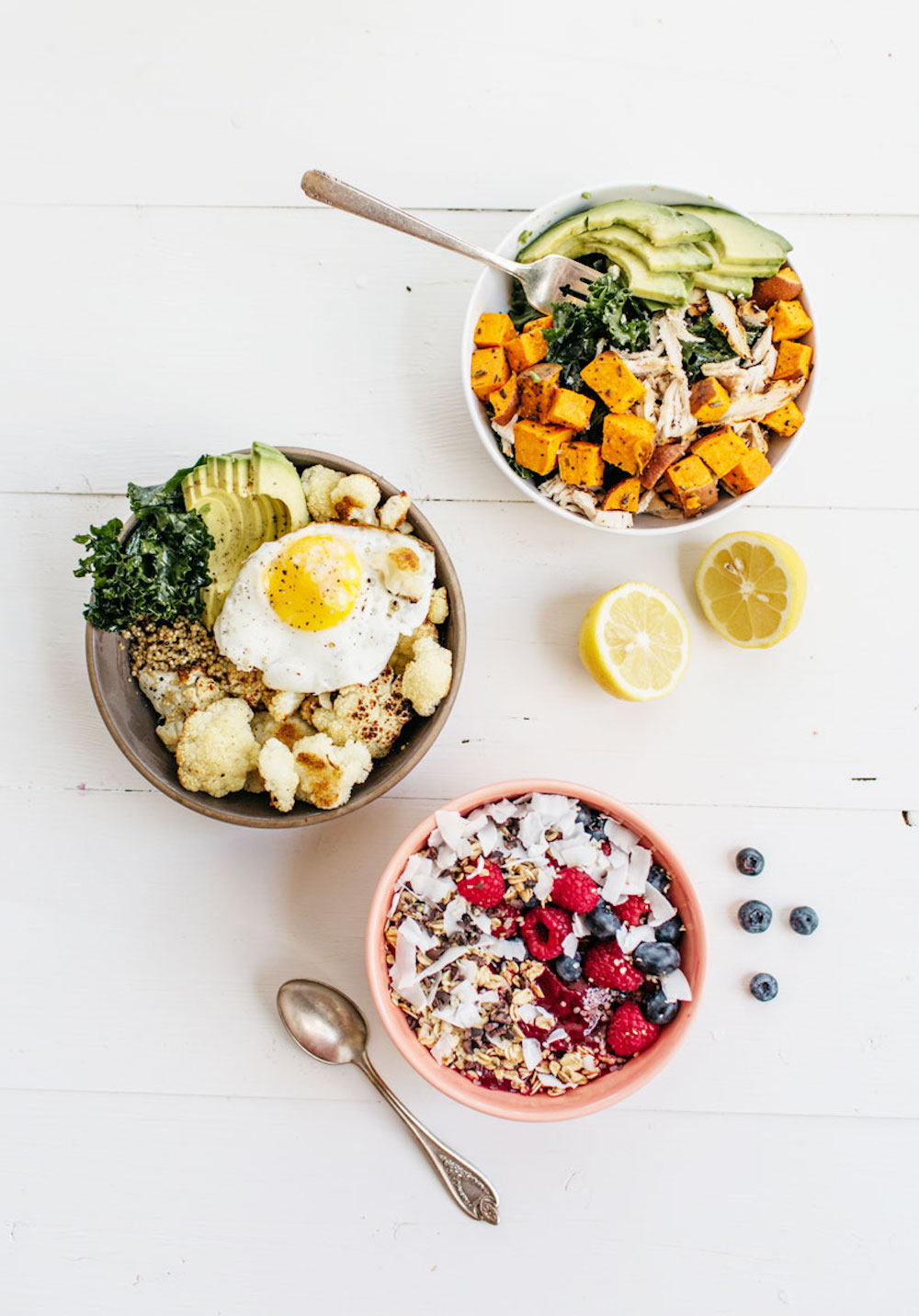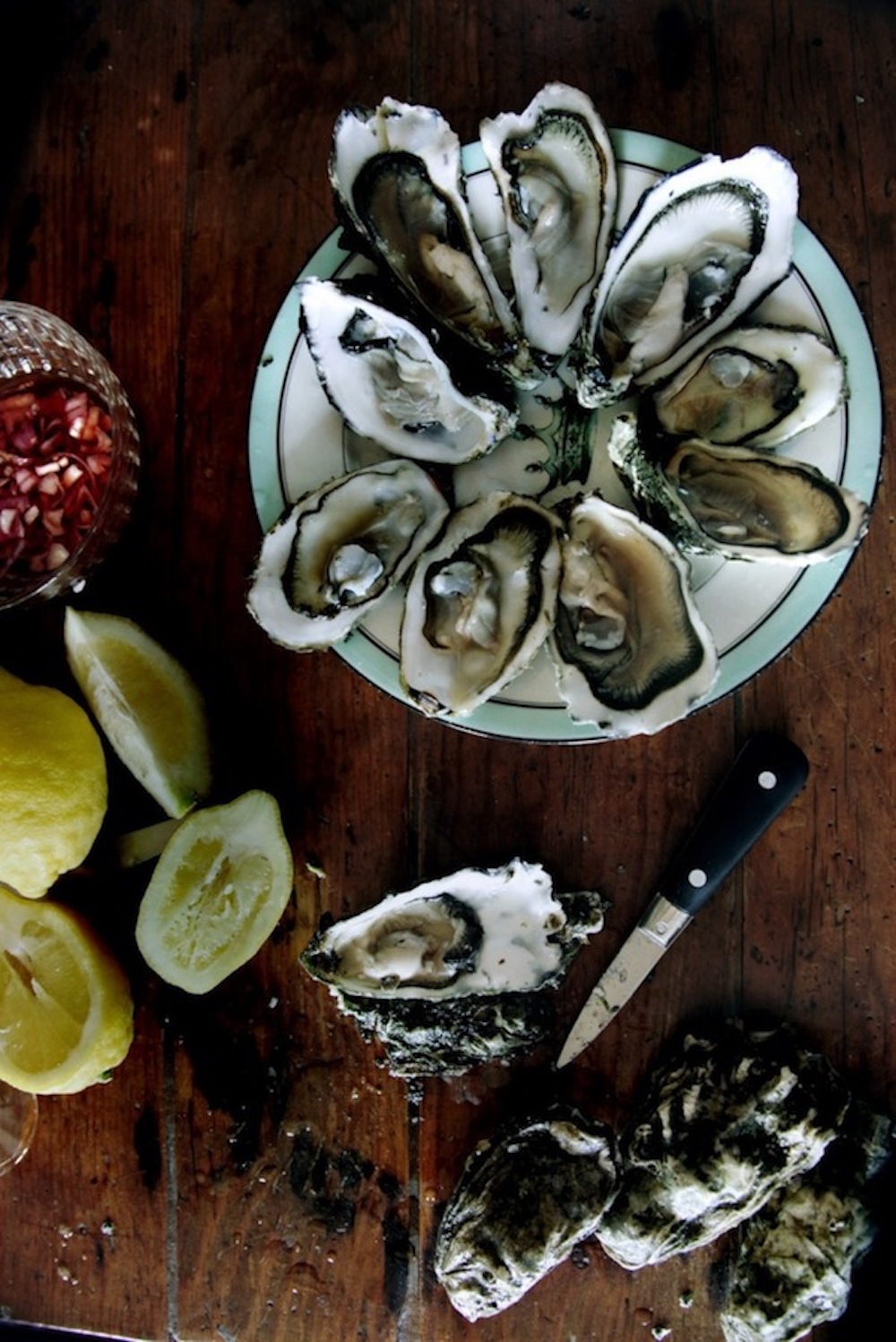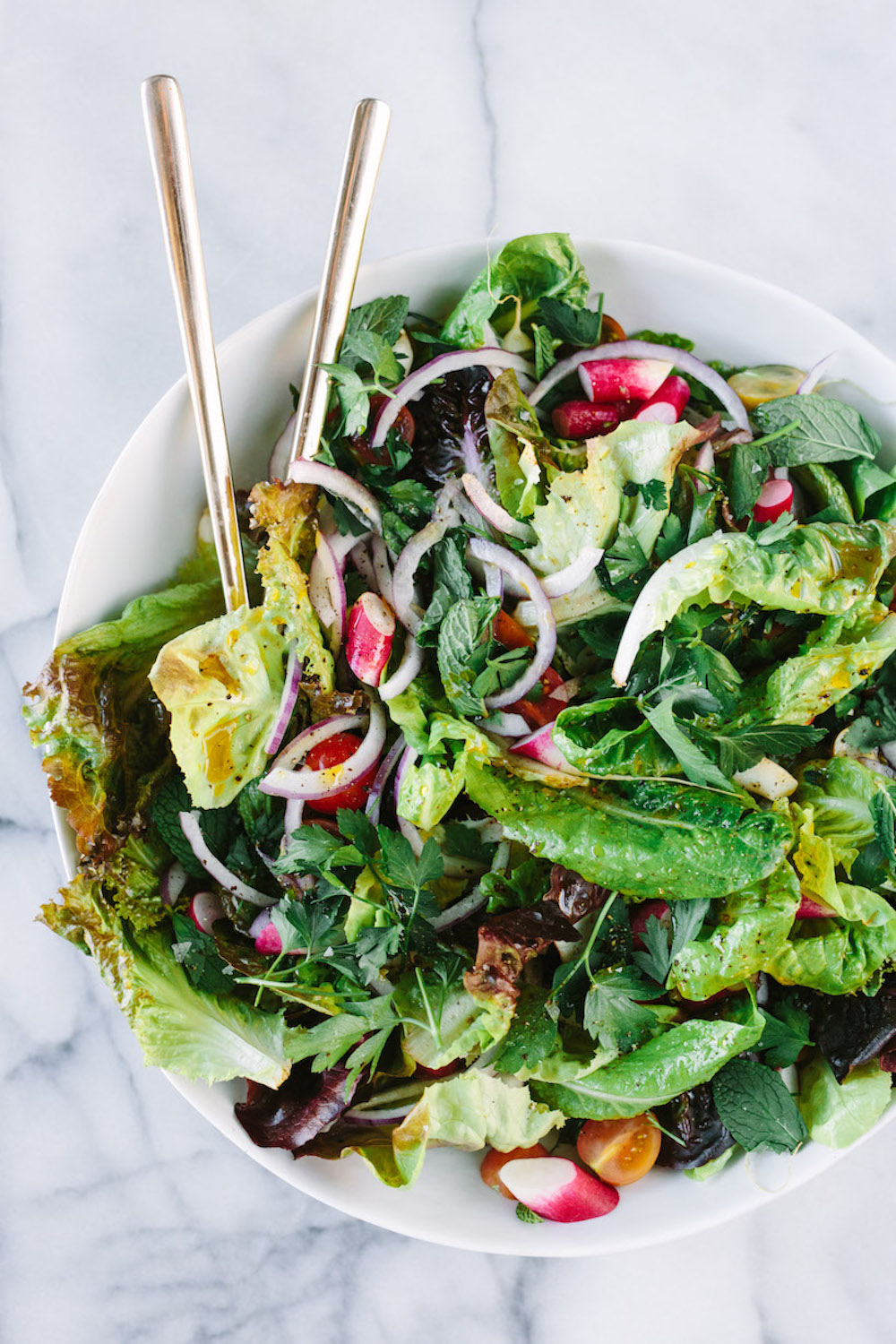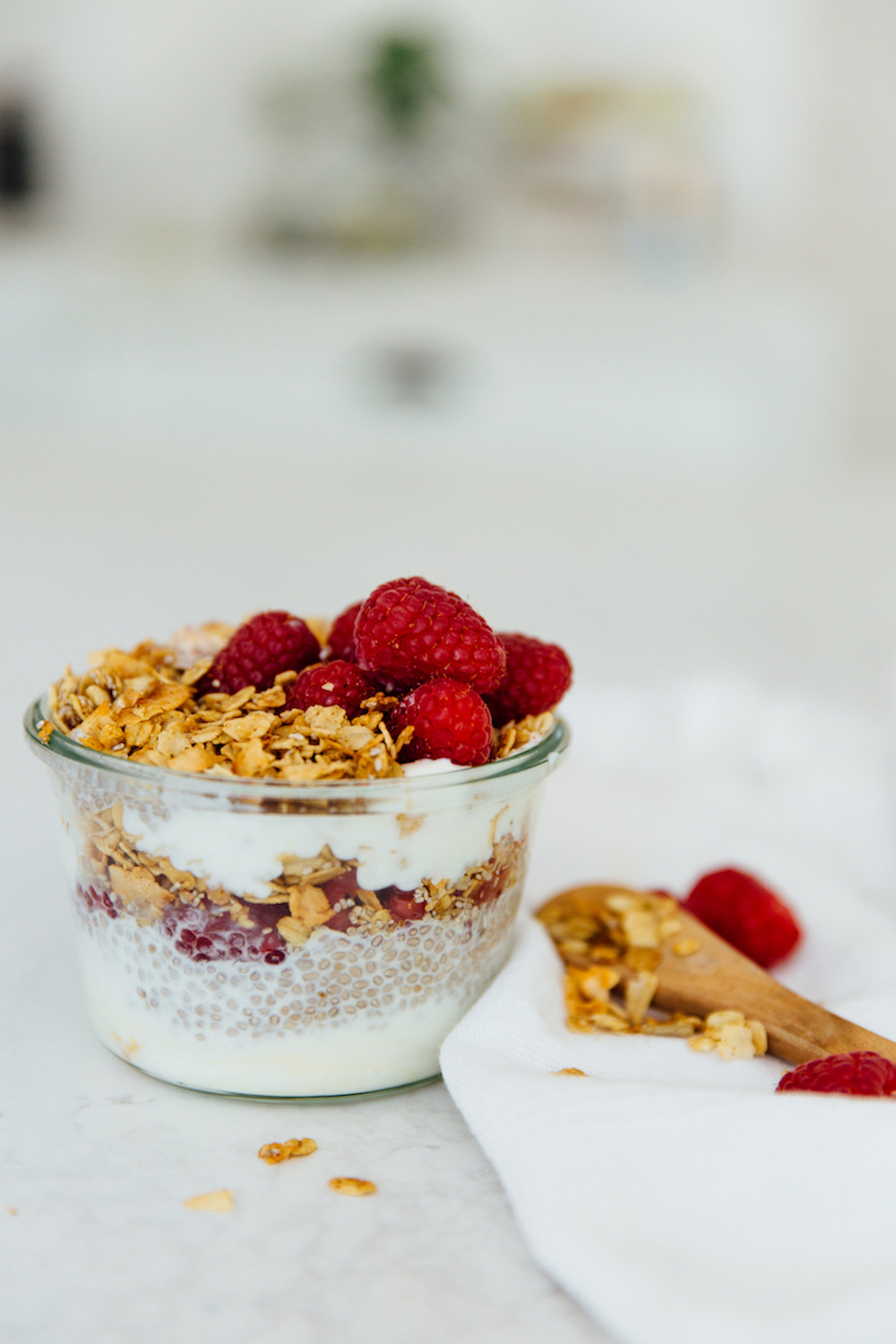Ed. note: this post was originally published in January 2019, but with anxiety and feelings of isolation start to creep in amidst the COVID-19 pandemic, we could use all the help we can get right now to boost our overall health and wellbeing.
Feeling blue—or maybe just a little blah? Your diet could be partly to blame. Growing research shows that the nutrients (or lack thereof) we put in our bodies have a major effect on our emotions.
Bottom line: the foods we choose to eat when we’re feeling stressed, tired, anxious, or depressed can either help pick us up, or keep dragging us down.
Next time you’re feeling down or in a fog, swap the pretzels and Ben & Jerry’s for one of these 8 proven mood-boosting foods. Let us know in the comments if you notice a difference in your overall mood!
featured image by kate lesueur
 photo by kate zimmerman
photo by kate zimmerman
A Balanced Breakfast
The effects on mood begin where your day begins: at breakfast. This is something I can personally attest to for multiple reasons. If I wait too long to eat breakfast, or graze on a few things here and there throughout the morning, I become irritated more easily, and my energy levels suffer the rest of the day. A nutrient-packed balanced breakfast is the best way to set our minds and bodies up for a great day ahead. Include lots of fiber (raspberries, sweet potatoes, chia seeds, avocado), some lean protein (yogurt, eggs, turkey bacon), and good (unsaturated) fats to balance out your whole-grain carbohydrates every morning. Along with improved mood, research has found that regularly eating breakfast also contributes to better memory, more long-lasting energy, and feelings of calmness.
 image by kristen kilpatrick
image by kristen kilpatrick
Green Tea
If you’re having a hard day, sipping a hot cup of tea can do wonders for calming nerves and brightening up a bad mood. Opt for green tea and you may reap even more benefits.
According to the American Journal of Clinical Nutrition, green tea contains many mood-boosting nutrients including the amino acid L-theanine, which has been linked to reducing symptoms of depression and anxiety.
Green tea also has some caffeine—which can serve as a welcomed pick-me-up when you’re feeling down, but not enough to give you the shakes.
 image by Oddur Thorisson
image by Oddur Thorisson
Oysters
Oysters may have a longstanding reputation as a leading aphrodisiac food, but their mood-boosting benefits go well beyond the bedroom. Oysters are high in zinc, a nutrient that’s not stored by the body and must be consumed daily. Being deficient in zinc is linked to depression, and consuming recommended amounts can help ease feelings of restlessness and anxiety. Zinc also helps improve sleep quality, which is essential for staying on an even keel throughout the day. Also, eating oysters is really fun! Order a glass of champagne (or two), and you’ll find eating this delicacy is an instant mood-lifter in itself. Not into raw seafood? Other good sources of zinc can be found in cashews, eggs, beef, beans, and chickpeas.

Dark Chocolate
The oft-touted benefits of dark chocolate as the ultimate pick-me-up are legit. In a study done at the Nestlé Research Center in Switzerland, researchers found that eating a little dark chocolate (1.4 ounces of it, to be exact) every day for two weeks reduced the levels of cortisol and other stress hormones in people who were highly stressed. According to Dr. Axe, dark chocolate contains antioxidants called polyphenols that support gut and immune health, which is crucial for the metabolism of mood-boosting amino acids and production of the ‘feel good’ hormone, serotonin. So go ahead! Indulge. Just be sure you’re choosing dark chocolate over milk, (which contains high amount of sugar), and limit your intake to one or two squares a day.
 image by hannah haston
image by hannah haston
Wild Salmon
One sure way to increase your mood and balance emotions? Work more omega-3 fatty acids into your meals. Omega-3s alter brain chemicals linked with mood—specifically dopamine and serotonin, and eating a fresh piece of wild salmon is one of the best ways to load up on these natural mood-boosters. Experts credit salmon’s anti-inflammatory properties for making this favorite fish key in helping to reduce symptoms of depression and mood disorders.
Get the recipe for Camille’s favorite salmon recipe here!
 image by kate zimmermann
image by kate zimmermann
Blueberries
With more antioxidants than any other common fruit or vegetable, blueberries help activate brain pathways associated with better cognition and cellular regulation. Thanks mostly to a type of antioxidant called flavonoids, blueberries help regulate mood, improve memory, and protect the brain from aging. Some experts say the anti-inflammatory may also be helpful in treating PTSD and other serious mental health issues.
 photo by mary costa
photo by mary costa
Leafy Greens
Nearly half of all Americans don’t get enough magnesium, a mineral that’s essential for increasing your energy levels and well-known for its mood-boosting abilities. Dark leafy greens like spinach and Swiss chard are loaded with it—so eating them is an easy way to hit your daily vegetable intake and boost your brain health, too. More great sources: beans and lentils, almonds, avocados, pumpkin seeds, and almonds.
“Magnesium helps relax the muscles and support brain function. Plus, it plays a vital role in nerve transmission, insulin metabolism, and blood pressure regulation,” says this expert source.
 photo by ashleigh amoroso
photo by ashleigh amoroso
Greek Yogurt
Calcium plays a major role in in releasing feel-good chemicals from your brain, and it can have significant effects on mood regulation. “In fact, some of the hallmark signs of a severe calcium deficiency include depression, mood swings, anxiety, and irritability,” says Dr. Axe. Other foods high in calcium: sardines, kale, and almonds.





